Group Linked To Iran Takes Responsibility For Attack On US Base
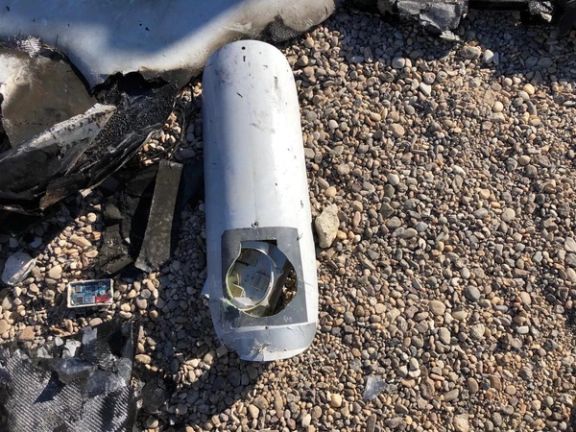
Shiite paramilitary group Qasem al-Jabbarin with links to Iran-backed militias has taken responsibility for the recent attacks on bases hosting US forces in Iraq.

Shiite paramilitary group Qasem al-Jabbarin with links to Iran-backed militias has taken responsibility for the recent attacks on bases hosting US forces in Iraq.
In a statement published by al-Mayadeen, Qasem al-Jabbarin (which means Smasher of the Oppressors) claimed responsibility for the Wednesday attacks on Ain al-Asad air base west of Baghdad.
The group said they launched a dozen rockets from a vehicle in the Bastamiya village, 25 kilometers west of the al-Heet (Hit) district in Iraq’s Al-Anbar Governorate.
US sources said the closest impact was around 2 kilometers (1.2 miles) from the base.
According to a profile on the group by the Washington Institute, Qasem al-Jabbarin is a front group directed by Kataib Hezbollah that specializes in roadside bombings against Iraqi supply trucks servicing the US military in Iraq.
Kataib Hezbollah, itself is part of the Iran-backed Popular Mobilization Forces, led by former Iraqi militia commander Abu Mahdi al-Muhandis before he was killed alongside Qasem Soleimani in January 2020 by a US drone strike.
Pentagon Press Secretary John Kirby said in a briefing on Wednesday that the pace and frequency of such attacks have increased.
Iraqi militia groups aligned with Iran vowed to retaliate for the targeted killings Soleimani and al-Muhandis.
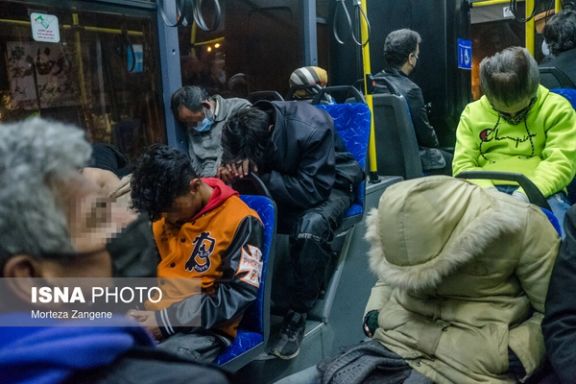
Controversies over "night bus sleepers" and whether to allow people to sleep on city buses have deepened in Iran, as high inflation impoverishes more people.
A photo report headlined "The Night Bus" published by the Iranian Students News Agency(ISNA) has heightened the issue of homeless people sleeping on Tehran buses.
Most are not drug addicts, the report said Saturday, and were people who work but cannot afford the cheapest guesthouses as accommodation. The night bus sleepers told ISNA that buses offered the chance for a few hours’ secure sleep away from shelters they found unsanitary and unsafe. Some said they always sleep in buses.
Ahmad Alavi, a member of Tehran City Council, told ISNA Sunday that municipality officials were aware that night bus sleepers were different from the “typical” homeless who were often addicted to drugs and frequented homeless shelters.
Social media activists responded to the report by suggesting mosques should open their doors for rough sleepers on cold winter nights, while hardliners who control the government and religious institutions opposed the idea on grounds that mosques should be used strictly for religious purposes. Mosques were not "dormitories," tweeted Abdollah Ganji, editor-in-chief of Javan newspaper, affiliated with the Revolutionary Guard.
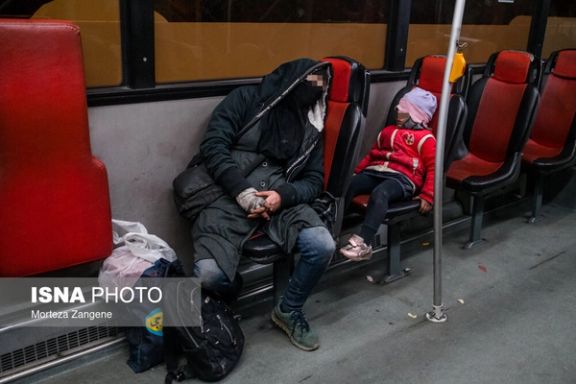
In response, social media users said mosques are being used for state propaganda and housing the Basij, the paramilitary arm of the Revolutionary Guards, and even for economic activities such as cryptocurrency mining which is much cheaply done in mosques due to the special rates they pay for electricity.
There are around 2,000 mosques in Tehran alone. According to Tehran Municipality, Tehran had around 130,000 homeless last year while shelters could only accommodate around 3,000.
Adding to the media hubbub, Mehdi Chamran, conservative chairman of Tehran City Council, said Tuesday he had asked the mayor, Alireza Zakani, to stop people sleeping on buses and to find other accommodation. He said foreign media running the story had “forgotten how garbage scavengers live in London or other places."
Living costs, particularly housing, have risen sharply in Tehran, which according to the Economist's 2021 index of worldwide cost of living jumped from 106th in 2019 to 29th in 2021. The EIU attributed the rise to “continued supply-side constraints, goods shortages and rising import prices following the reimposition of US sanctions.” The EIU ranked Tel Aviv as the most expensive city in the world, followed by Paris.
According to a report by EcoIraneconomic website published January 3, the index for ‘misery’ – adding the unemployment rate to inflation – rose 20 points to 55 points in the twelve months leading to September 2021.
The increase results entirely from rising inflation as government figures, on which the EcoIran report was based, show a fall in unemployment from around 12 percent in summer 2020 to 9.6 percent in 2021.Economists say the figuredoes not include those losing work during the pandemic, and that the government-run Iran Statistical Center considers anyone who has worked for at least one hour a week to be employed. According to ISC,unemployment is at the lowest levelsince 1996, with the center highlighting “the spread of the coronavirus disease which has caused many young adults to leave the labor market.”
The Washington-based conservative Cato Institute, committed to ‘libertarian’ economics, ranked Iran 8th in the world in its Hanke's 2020 Annual Misery Index, with Venezuela as the world’s most miserable country.
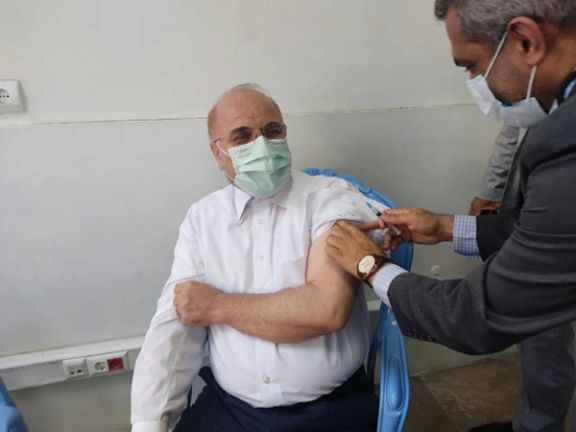
Members of the Iranian parliament have received AstraZeneca as their booster vaccine shot while the brand is not available for other people in the country.
The report about providing AstraZeneca for the lawmakers on Wednesday sparked reactions by Iranians who were desperately looking for the vaccine.
Iran’s health ministry had confirmed the scarcity of AstraZeneca in Iran and urged people to trust the indigenous brands.
Iran’s Supreme Leader Ali Khamenei banned the purchase of American and British vaccines in January 2021, which set back Iran’s inoculation effort. Critics say that as a result tens of thousands unnecessarily died in the fifth wave of the pandemic last year.
Iran embarked on the development of homegrown vaccines, spending hundreds of million of dollars with little result. People do not trust what the government encourages them to accept as domestic vaccines.
Under public pressure, the government imported a limited quantity of Indian-produced AstraZeneca in 2021.
Recently the government announced it will stop importing vaccines as local variants would be sufficient for the country.
Enraged by the apparent discrimination in the distribution of vaccines, many people across Iran have decried the inoculation of lawmakers, asking why officials don’t use vaccines made in Iran.
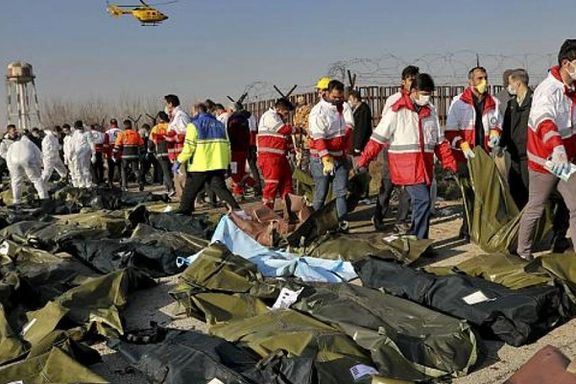
Canada, Britain, Sweden and Ukraine on Thursday said they had abandoned efforts to talk to Tehran about reparations for an airliner downed by Iran and would try to settle the matter according to international law.
Most of the 176 people killed when Iran shot down the Ukrainian jet in January 2020 were citizens from those four countries, which created a coordination group that seeks to hold Tehran to account.
"Despite our best efforts over the past two years and multiple attempts to resolve this matter through negotiations, the Coordination Group has determined that further attempts to negotiate with Iran ... are futile," it said in a statement.
"The Coordination Group will now focus on subsequent actions to take to resolve this matter in accordance with international law," it continued, but did not give details.
Tehran says Revolutionary Guards accidentally shot down the Boeing 737 jet and blamed a misaligned radar and an error by the air defense operator at a time when tensions were high between Tehran and the United States.
A court in Ontario, Canada, this week awarded C$107 million ($83.8 million), plus interest, to the families of six people who died.
Report by Reuters
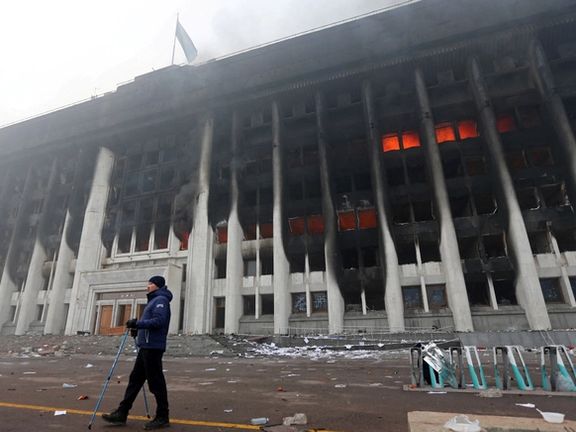
Iran has warned against meddling by foreign countries in Kazakhstan, the scene of violent protests, saying that the Tehran is monitoring the ongoing developments carefully.
Foreign Ministry Spokesman Saeed Khatibzadeh said on Thursday that Kazakhstan can resolve its issues at home peacefully and through dialogue and should not allow foreign meddling in the country.
He added that the stability and security of the “friendly and brotherly neighboring country” is very important for Tehran, noting that people of Kazakhstan should be wary of the attempts by foreign parties to exploit the unrest for their own interests.
Earlier on Thursday, Russia sent paratroopers into the country to quash the uprising following the deadly clashes that started after the government lifted a price cap on fuel.
A state of emergency has been declared in the country’s largest city Almaty, where police killed dozens of protesters who had set fire to a presidential residence and the mayor’s office in Almaty and stormed many other government offices.
According to state television, 13 members of the security forces have died, including two who were decapitated.
The unrest seems unprecedented for Kazakhstan that has been ruled since the Soviet era by its octogenarian leader Nursultan Nazarbayev, who has held its grasp over the country despite stepping down as president three years ago.
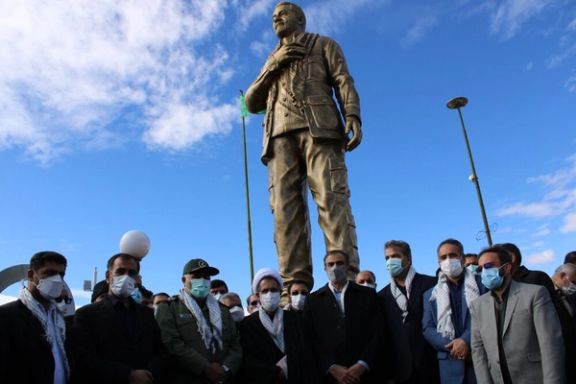
A memorial statue of Qasem Soleimani, the commander of Iran’s Revolutionary Guard Qods Force, was set on fire in the central city of Shahrekord on Wednesday.
A video which surfaced on social media Wednesday night showed the statue burning.
The monument had been erected in one of the main squares of the city in the morning, concurrent with the nationwide ceremonies to mark the second anniversary of his death.
Soleimani, who was Iran’s top military and intelligence operator in the Middle East, was killed by a targeted US drone strike on January 3, 2020, directly ordered by former US president Donald Trump.
The representative of Supreme leader Ali Kamenei in the city described the people behind the political vandalism as “idiots”.
In September 2021, police arrested a man for torching another statue of Soleimani in the southwestern city of Yasuj, not very far from Shahrekord.
A few months before that, three young men in the city of Baneh were sentenced to a total of 16 years and seven months in prison for setting fire to a banner of Soleimani.
Many Soleimani busts and figurines have been unveiled by hardliners and supporters of the IRGC since his killing in January 2020.